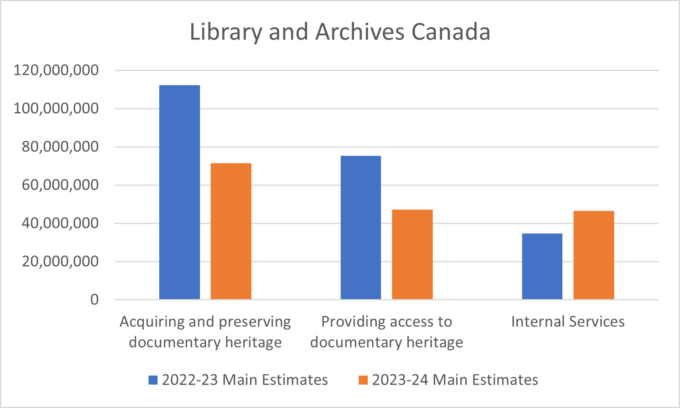The detailed plan is now available here. I previously posted on the financials.
In the whole document, genealog* and census occur in just one paragraph.
In 2023–24, LAC will prioritize processing of, and providing access to, the 1931 Canadian census. This collection will be the very first to be processed and made accessible to the public through DAMS. Censuses are an essential source of information for genealogical research, because they help to piece together the composition of a household and identify its members, including their age, gender, relationships, occupation and even religion. In an ongoing effort to improve the user experience and simplify research, LAC recently launched the Census Search tool, a one-stop shop for 44 million records previously held in 17 databases.
Newspapers and maps each occur once, in a paragraph referring to the 50 million items LAC continues to preserve.
Focusing in on “Providing access to documentary heritage,” a summary paragraph is:
In 2023–24 and beyond, LAC will significantly transform its services, both at its points of service and online. It will work to improve its digital presence, to make the collection more accessible and to reach more Canadians. It will prioritize the needs of users.
This word cloud shows terms in the section with ten or more occurrences. Notice ATIP and indigenous mixed amongst the expected planning terminology.
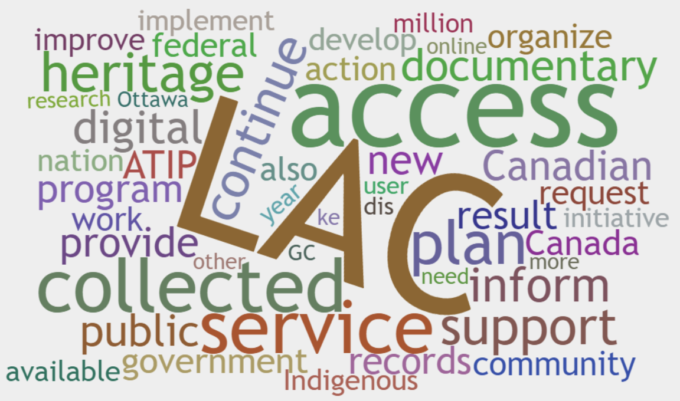
The number of images from LAC collection digitized is an indicator that has a history. In 2023-24 the target is 5.5 million, more than double that of the past two years due to additional funding obtained to digitize records related to the former federal Indian Day Schools system and to support LAC’s ATIP function.
The target is less ambitious than the 21.8 million pages achived over three years ending in 2019 when the target was 40 milllion pages.
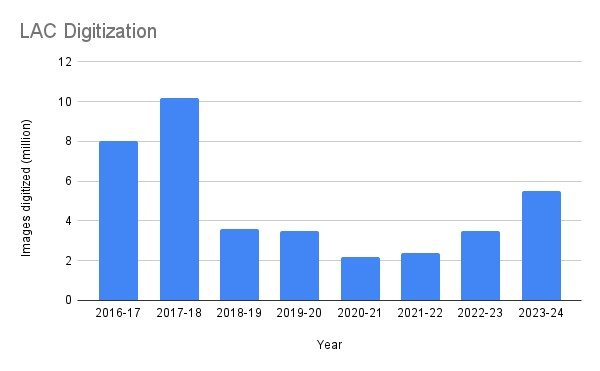
The figures for 2022-23 and 2023-24 are targets. A request to LAC for access to plans with earlier information, which is no longer available on the new LAC website, received a prompt acknowledgement that “due to a high volume of requests there can be a delay of up to a couple of months for a response to more complex research inquiries.”
LAC projects 3 million unique visitors to LAC’s website and online applications in 2023-24, a 10% increase.
A new section in the plan is Gender-based analysis plus. It’s getting established, as indicated in each of the seven components in “Highlights of GBA Plus Results Reporting Capacity by Program” by the sentence “This program does not collect sufficient data at this time to enable it to monitor and/or report program impacts by gender and diversity”


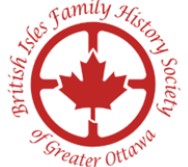 It’s back to hybrid meetings on Saturday for the British Isles Family History Society of Greater Ottawa.
It’s back to hybrid meetings on Saturday for the British Isles Family History Society of Greater Ottawa. “An incorrigible rogue and vagabond.”
“An incorrigible rogue and vagabond.”
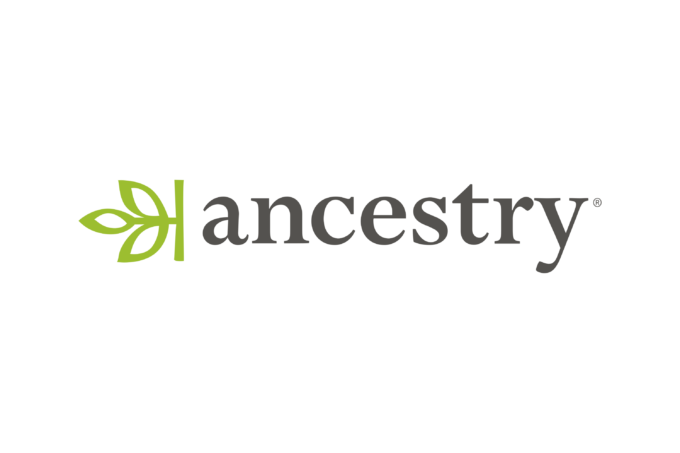 An email arrived from
An email arrived from  The FreeBMD database was updated on 1 March 2023 to contain 287,549,647 unique records, that’s an increase from
The FreeBMD database was updated on 1 March 2023 to contain 287,549,647 unique records, that’s an increase from 